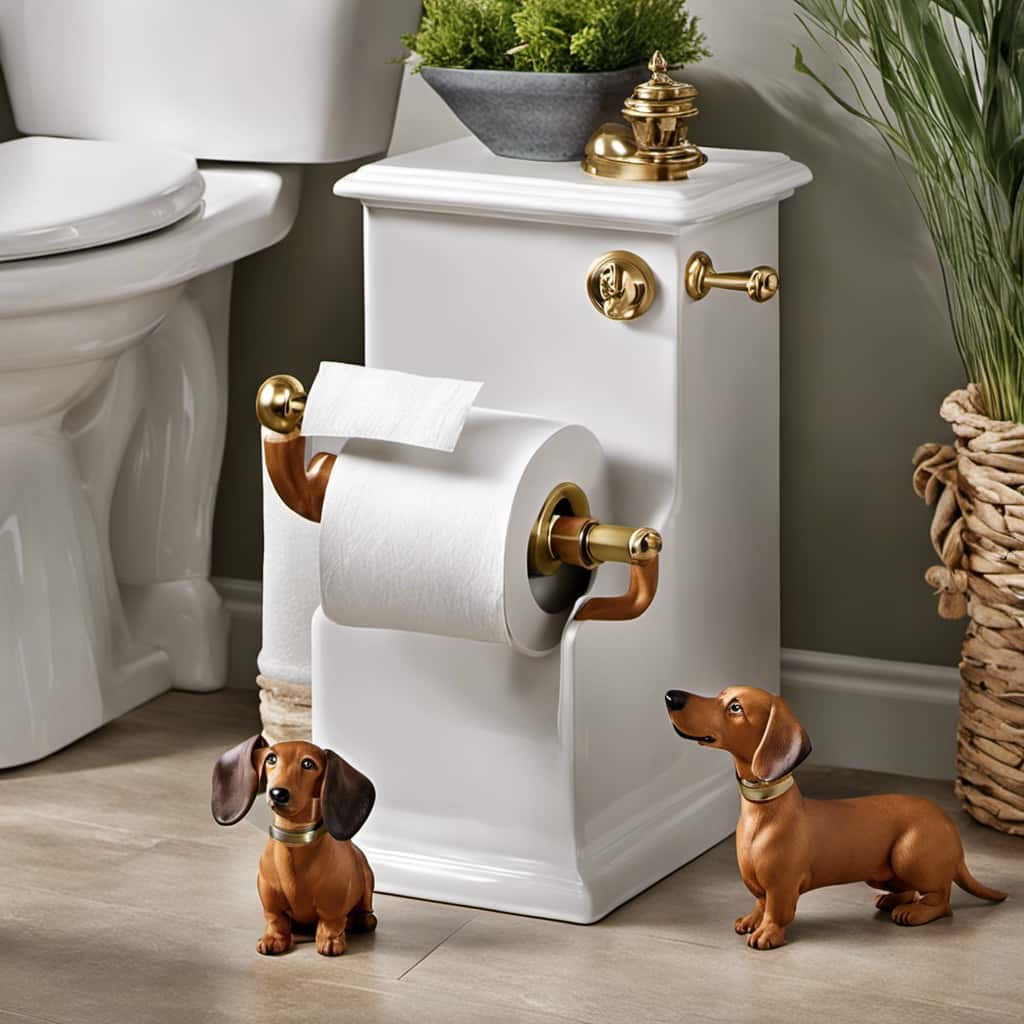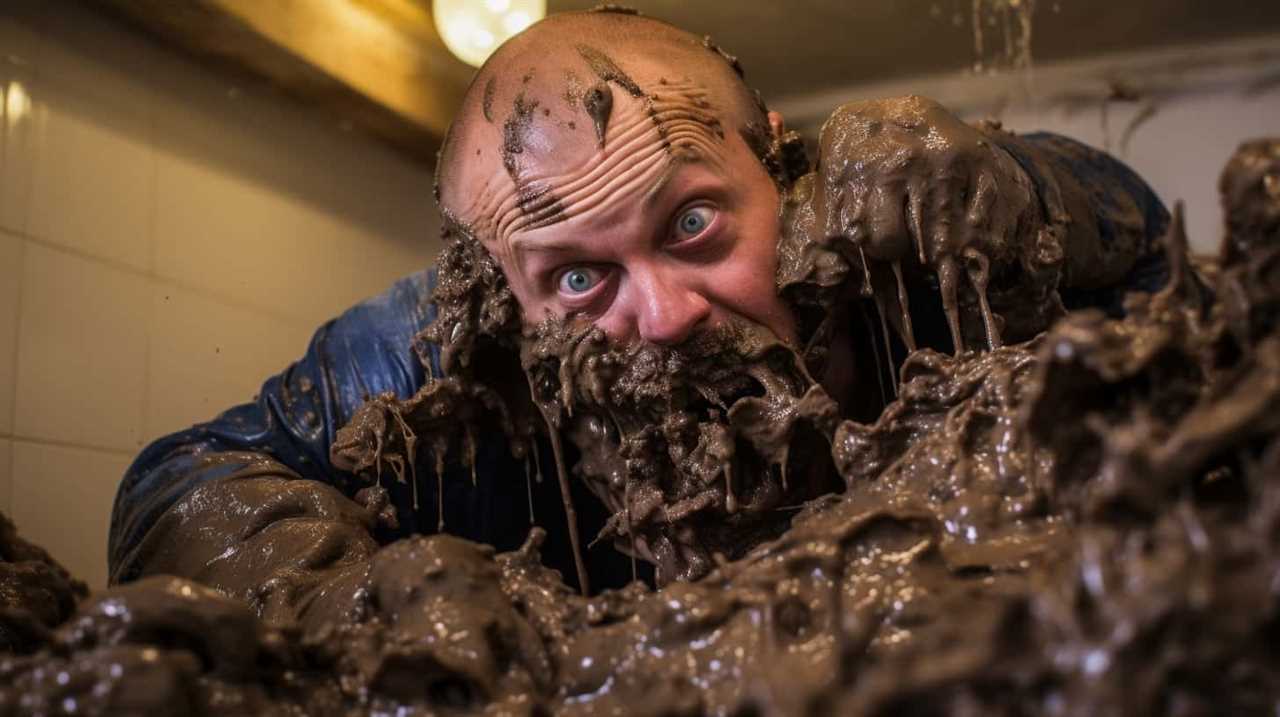Let’s dive into the delicate topic of what to avoid flushing down the toilet. We all know that using the restroom is a regular part of our daily routine, but there are certain items that should never be disposed of this way.
In this article, we’ll explore the consequences of flushing paper towels, baby wipes, dental floss, medications, and even grease down the toilet.
So, buckle up and let’s master the art of proper toilet etiquette.
Key Takeaways
- Paper towels and tissues should never be flushed down the toilet.
- Baby wipes and diapers should also not be flushed as they can cause damage to plumbing systems.
- Dental floss and cotton balls should be disposed of in the trash or explored for eco-friendly alternatives, as they can harm plumbing and wastewater systems.
- Medications and drugs should be properly disposed of through drug take-back programs or designated collection sites to avoid risks to the environment and public health.
Paper Towels and Tissues
We strongly advise against flushing paper towels and tissues down the toilet.

While it may seem convenient to dispose of these items in the toilet, it can have serious consequences for your plumbing system and the environment.
Paper towels and tissues aren’t designed to break down easily in water, unlike toilet paper, which is specifically designed for this purpose. Flushing paper towels and tissues can lead to clogged pipes and sewage backups, resulting in costly repairs.
Moreover, these items can also contribute to environmental pollution. Unlike toilet paper, which is made from biodegradable materials, paper towels and tissues often contain synthetic fibers and chemicals that can harm aquatic life and disrupt ecosystems.
To minimize these risks, it’s important to use toilet paper alternatives, such as biodegradable wipes, and dispose of paper towels and tissues in the appropriate waste receptacles.

Baby Wipes and Diapers
As for baby wipes and diapers, it’s crucial to never flush them down the toilet due to the potential harm they can cause to your plumbing system and the environment. Flushing baby wipes and diapers can lead to clogged pipes and sewage backups, resulting in costly repairs.
Moreover, these items don’t break down like toilet paper, causing blockages in sewer systems and contributing to environmental pollution. To minimize the environmental impact and ensure proper disposal, it’s important to dispose of baby wipes and diapers in the trash.
Consider using a diaper pail or a separate waste bin lined with a bag to contain the soiled items. This way, you can protect your plumbing system and help preserve the environment by adopting responsible disposal methods.
Dental Floss and Cotton Balls
To avoid potential plumbing issues and environmental harm, it’s important to never flush dental floss and cotton balls down the toilet.

While dental floss and cotton balls may seem small and harmless, they can actually cause significant damage to both your plumbing system and the environment. Dental floss isn’t biodegradable and can wrap around pipes, causing blockages and clogs.
Cotton balls, on the other hand, can absorb water and expand, leading to pipe bursts. Furthermore, both dental floss and cotton balls can end up in wastewater treatment plants, where they can disrupt the treatment process and harm aquatic life.
Instead of flushing these items, it’s best to dispose of them in the trash or explore more eco-friendly alternatives.
Medications and Drugs
Improper disposal of medications and drugs down the toilet poses risks to both the environment and public health. Flushing expired prescription medications or any kind of drugs down the toilet can have significant environmental impacts.

Here are four reasons why you should never flush medications or drugs:
- Water contamination: Flushed medications can end up in our water supply, potentially contaminating drinking water sources.
- Harm to aquatic life: Chemicals in drugs can harm aquatic organisms when they enter rivers, lakes, and oceans through wastewater treatment plants.
- Antibiotic resistance: Flushing medications contributes to the development of antibiotic-resistant bacteria, making it harder to treat infections.
- Groundwater pollution: Some drugs can seep into groundwater, affecting the quality of our underground water sources.
To protect the environment and public health, it’s crucial to dispose of medications and drugs properly through drug take-back programs or designated collection sites.
Grease and Cooking Oil
We should never flush grease and cooking oil down the toilet due to the potential harm it can cause to our plumbing and wastewater systems.
When grease and cooking oil are poured down the toilet, they can solidify and create sewer blockages. These blockages can lead to costly repairs and disruptions in the wastewater treatment process.

Additionally, when grease and cooking oil enter the sewer system, they can have a significant environmental impact. They can coat the inside of pipes, reducing their capacity and increasing the likelihood of backups and overflows.
Moreover, when these substances reach the wastewater treatment plant, they can interfere with the treatment process and contribute to the release of pollutants into the environment.
To prevent these issues, it’s best to dispose of grease and cooking oil in a separate container and dispose of it in the trash.
Frequently Asked Questions
Can I Flush Paper Towels and Tissues Down the Toilet if They Are Biodegradable?
We should never flush paper towels or tissues down the toilet, even if they are biodegradable. Flushing them can clog the pipes and cause blockages in the sewage system. Properly dispose of them in the trash.

Are There Any Types of Baby Wipes or Diapers That Are Safe to Flush?
When it comes to safe disposal methods for baby wipes and diapers, it is essential to consider alternatives to flushing them down the toilet. Flushing can have a significant environmental impact.
Why Is It Important Not to Flush Dental Floss and Cotton Balls Down the Toilet?
It is important not to flush dental floss and cotton balls down the toilet because they can have a significant impact on the sewage system and lead to environmental consequences.
Is It Safe to Flush Expired Medications and Drugs Down the Toilet?
Flushing expired medications and drugs down the toilet is not safe. Proper disposal methods should be followed to prevent contamination of water sources and harm to the environment.
Can I Pour Small Amounts of Cooking Oil or Grease Down the Toilet Without Causing Any Issues?
Yes, pouring small amounts of cooking oil or grease down the toilet can cause serious plumbing issues. It can clog pipes and lead to blockages. Proper cooking oil disposal is important to avoid costly repairs.

Conclusion
In conclusion, it’s crucial to remember that certain items should never be flushed down the toilet.
Although it may seem convenient at the time, items like baby wipes, diapers, dental floss, cotton balls, medications, and grease can cause serious plumbing issues and harm the environment.
While it may be tempting to dispose of these items in the toilet, it’s important to dispose of them properly to avoid costly repairs and protect our water systems.









